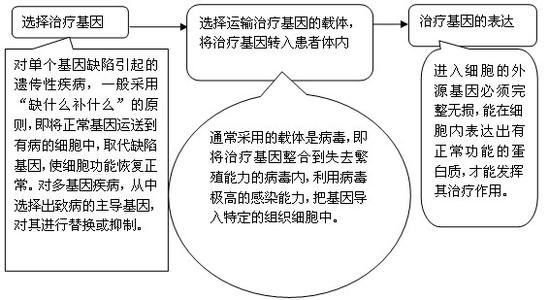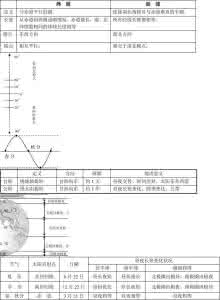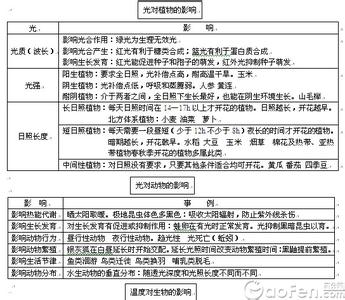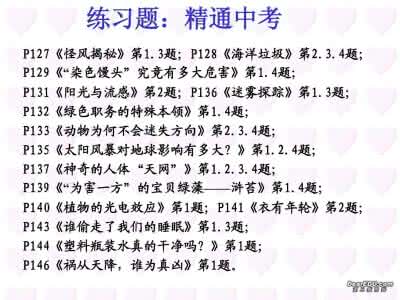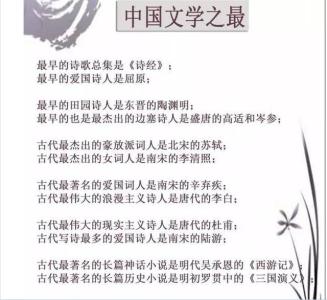情态动词
一、can和could的用法
1.表示能力
Her mother can speak French.
2.表示客观可能性
Anybody can make mistakes.
3.表示许可(多用于口语)
Can I go now?
二、may和might的用法
1.表示允许、请求
—May I watch TV now?
—Yes,you may.(Yes,please.)
—No,you mustn’t.(No,you’d better not.)
2.表示可能性(主要用于陈述句、肯定或否定句,疑问句用can代替)
The story may not be true.
3.表示祝愿(不用might)
May you succeed!
三、need和dare的用法
1.need表示“需要,必要”,只能用于否定句和疑问句。在肯定句中,常用must和have to代替。
2.dare表示“敢”,通常用于否定句、疑问句和条件状语从句中。
Dare you go home alone at eleven in the evening?
3.need和dare的特殊用法
(1)need表“需要”时,可用want,require代替。
The desk needs to be repaired./The desk needs repairing.
(2)dare作实义动词时,在肯定句中要接to,在疑问句和否定句中to可省去。
He dares to catch a snake.
四、will和would的用法
1.will
(1)表示请求、建议,常用于第二人称。
Will you please go with me?
(2)表示意愿、决定、允许。
I will never do that again.
(3)表示习惯性动作或某种倾向,“总是,惯于”,通常用于第三人称。
Fish will die out of water.
2.would
(1)表示请求、建议,比will委婉,指现在时间,多用于第二人称。
Would you like a cup of tea?
(2)表示过去习惯性动作或某种倾向。
We would play badminton on Sundays.
五、shall和should的用法
1.shall
(1)用于第一、三人称,在问句中表示征求对方意见或请求。
(2)用于第二、三人称表示命令或威胁。
You shall do as your father says.
2.should
(1)表示责任、义务,意为“应该”。
(2)表示惊讶语气,意为“竟然”。
You should wear slippers in class.
(3)用于条件句,表示“假如,万一”,省去if,should可提至句首。
Should you be late,apologize to the teacher.
六、“情态动词+have done”的用法
1.must have done sth.;can(could) have done sth.
(1)must have done sth.表示对过去已经发生的事情的有把握的推测,意思是“想必、准是、一定做了某事”,只用在肯定句中。
It must have rained last night,for the ground is wet.
(2)can(could) have done sth.表示对过去发生的动作的怀疑和不肯定,通常用在否定句和疑问句中。
He can’t have forgotten it.
2.needn’t have done sth.;didn’t need to do sth.
(1)needn’t have done sth.表示已完成不需要完成的动作。
You needn’t have waken me up.I don’t have to go to work today.
(2)didn’t need to do sth.表示没有必要做而实际上也没有做某事。
I didn’t need to clean the windows.My brother did it.
3.may/might have done sth.
may/might have done sth.表示对过去已发生的动作的推测,意为“也许/或许已经……”。
I’m not sure.He might have said so at the conference.
4.should have done sth.
should have done sth.表示本来应该做某事而实际上未做。
You should have told him about it.
5.had better have done sth.;would rather have done sth.;would like/love to have done sth.
(1)had better have done sth.表示事后的建议,含轻微责备的口吻,意为“当时做了某事就好了”,其否定形式had better not have done sth.表达相反的含义。
(2)would rather have done sth.表示“宁愿当时做某事”,其否定形式would rather not have done sth.表达相反的含义,两者都含有“后悔”之意。
I would rather have taken his advice.
(3)would like/love to have done sth.表示过去愿意做某事,但未做成。
I would love to have gone to the party last night,but I had to work extra hours to finish my report.
1.I________have watched that movie—it’ll give me horrible dreams.(2010·山东,25)
A.shouldn’t B.needn’t
C.couldn’t D.mustn’t
2.Mark________have hurried.After driving at top speed,he arrived half an hour early.(2010·天津,9)
A.needn’t B.wouldn’t
C.mustn’t D.couldn’t
3.Just be patient.You________expect the world to change so soon.(2010·全国Ⅰ,29)
A.can’t B.needn’t
C.may not D.will not
4.—I haven’t got the reference book yet,but I’ll have a test on the subject next month.
—Don’t worry.You________have it by Friday.(2010·江苏,25)
A.could B.shall
C.must D.may
5.—May I take this book out of the reading room?
—No,you________.You read it here.(2010·陕西,23)
A.mightn’t B.won’t
C.needn’t D.mustn’t
一、用适当的情态动词填空
1.Looking people in the eye ________ sometimes make them nervous and embarrassed.
2.—Oh my god!You ________ wear slippers to attend the conference.
—I’m sorry.I forgot there is a conference.
3.—Hello,Peter.Would you please go shopping with me after school?
—Sorry.Our school is a boarding school.In school days nobody ________ go out of school without the head teacher’s permission.
4.—Has Tim started?He said he would join in the party.
—He ____________________(leave).He is a man of his word.
5.—Why can your teacher know so much about London?
—He ________ have been there before.
二、单项填空
1.In fact,you ________ go outside at all.There’s a supermarket just downstairs.
A.couldn’t B.mustn’t
C.needn’t D.shouldn’t
2.—I’m feeling cold today.
—You ________ more warm clothes.
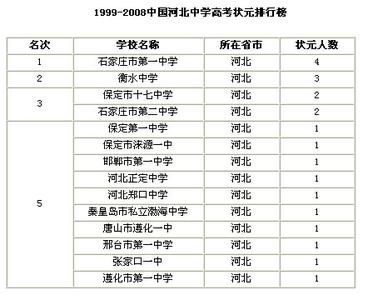
A.should wear B.should have worn
C.can have worn D.can wear
3.—Did Mary come to the party?
—I don’t know.She ________ while I was out.
A.may have come B.must have come
C.might come D.could come
4.—Alice looks sad.Did you tell her about the accident?
—Yes,but I ________ her just before her final examinations.
A.should have told B.shouldn’t have told
C.needn’t have told D.must have told
5.—I know she was in because I heard her radio,but she didn’t open the door.
—She ________ the bell.
A.may not be hearing B.may not have heard
C.must not have heard D.must not be hearing
6.—Look,Tom has fallen asleep.
—Oh,he ________ too late yesterday evening.
A.might stay up B.should have stayed up
C.could stay up D.must have stayed up
7.As it turned out to be a small house party,we ______ so formally.
A.needn’t dress up
B.did not have dressed up
C.did not need dress up
D.needn’t have dressed up
8.—I’ll tell Mary about the new job tomorrow.
—You ________ her last week.
A.ought to tell B.may tell
C.would have told D.ought to have told
9.The traffic is heavy these days.I ________ arrive a bit late,so could you save me a place?
A.can B.must C.need D.might
10.You ________ fail to pass the College Entrance Examinations if you don’t study harder.
A.shall B.could
C.must D.should
答案
感悟高考
1.A [句意为:我本不应该看那部电影——它会给我带来噩梦。由破折号后的内容来判断,其前内容为“不该做某事而做了”。shouldn’t have done sth.本来不该做某事却做了;needn’t have done sth.本来不必做某事却做了;couldn’t have done sth.为否定推测,表示“不可能做过某事”。]
2.A [句意为:马克本没有必要那么急,全速开车后他提前了半个小时到达。根据句意和前后的照应可知应选A项。A项表示“本没有必要”;B项意为“不会”;C项表示“不允许”;D项表示“不可能”。显然,B、C、D三项与后文论述不符。]
3.A [句意为:要耐心。你不能期望世界会这么快地改变。can’t不可能,不能;needn’t没有必要;may not可能不;will not将不会,不会。根据句意知选A项。]
4.B [句意为:——我还没有弄到参考书,但是下个月我将参加这门学科的测试。——不要担心,到星期五时你就有了。could能够;shall在句中表示“允诺”;must必须;may也许,可以。]
5.D [句意为:——我可以把这本书带出阅览室吗?——不可以,你一定不能带出去。你就在这里读。mustn’t表示强烈地禁止。]
领悟语法
一、1.can 2.shouldn’t 3.shall 4.must have left
5.must
二、1.C [needn’t表示没有必要;mustn’t表禁止。句意为:事实上,你根本没有必要出去,楼下就有一个超市。]
2.A [由“I’m feeling...”的时态可知,应该说的是现在的事情,所以要用“情态动词+动词原形”,根据句意可知应该多穿点衣服。]
3.A [由did可知是对过去发生的事情进行猜测,要用“情态动词+现在完成时”,由I don’t know可知该推测不那么的肯定,所以选A,表示“当我出去时她可能来过”。]
4.B [由“Alice looks sad”可知我本不应该在期末考试前告诉她这个事故的。]
5.B [由第一句的时态可知事情发生在过去。对过去的事情进行猜测,要用“情态动词+现在完成时”,故选择B;must表猜测时不用在否定句中。]
6.D [由yesterday evening可知事情发生在过去,对过去的事情进行猜测,要用“情态动词+现在完成时”。must have done sth.意为“肯定做过某事”;should have done sth.意为“本应该做而未做某事”。]
7.D [由“As it turned out...”是对过去的事情进行推测可知,要用“情态动词+现在完成时”;needn’t have done意为“本没必要做却做了”。句意为:这么小的一个家庭聚会,我们本没必要正式化妆的。]
8.D [由last week可知是过去该做某事而未做,故用“should/ought to+have done sth.”。]
9.D [句意为:近来交通拥挤,我可能会晚一点到,你能给我占个位子吗?表示不确定的推测用might。can表示“可能”,把握性比might大;must表示“肯定”,是非常接近于事实的推断;need表示“必要,需要”,三者均与句意不符。]
10.A [shall用于第二人称表示警告。]
 爱华网
爱华网